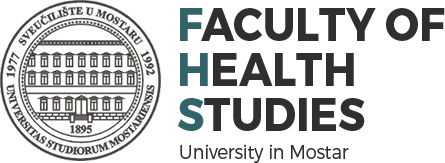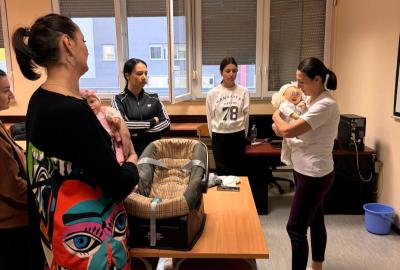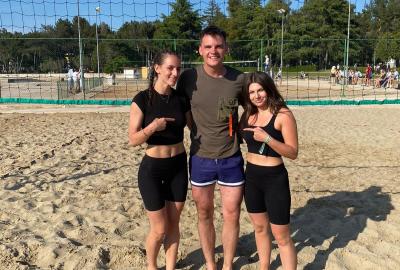According to the World Confederation for Physical Therapy (WCPT), the act of approaching world standards in physiotherapy requires some progress in the education system and the organization of clinical work of physiotherapists.
Physiotherapy is an autonomous profession whose practitioners should work in an open and equal professional relationship with other health professionals. Physiotherapists assess patients and then plan and implement therapy by using various forms of physical agents (movement, electricity, water, heat, minerals, mud, climatic conditions, ultrasound, laser, electromagnetic field, and similar) and all of this is done in collaboration with the patient or user and their families.
The development of physiotherapy in Europe and the world is marked by an increased range of knowledge and skills. A three year undergraduate university study of physiotherapy was designed at the Faculty of Health Studies in order to adapt to these new needs of the profession. The study program is adapted to the modern needs of the profession, student’s abilities and current needs of modern health care.
Education Objectives
A physiotherapist is trained for: assessment of patient status and physiotherapeutic treatment, implementation of kinesiometric and other measurements in order to diagnose the function of the musculoskeletal system, planning and programming of physiotherapeutic procedures, application of special physiotherapy treatments according to the patient's needs, evaluation of treatment effects, involvement in education of physiotherapists and other health care professionals, participation in physiotherapy research, teamwork training, especially for a transdisciplinary model in problem solving, continuous self-education, as well as advancement in profession.
The curriculum should help future physiotherapists:
- in the acquisition of a humanistic and integral approach to a person who is in physiotherapy treatment
- in achieving sensitivity to individual needs and preferences,
- in acting according to detected or observed needs,
- in acquiring skills,
- in acquiring knowledge based on practice,
- in developing critical thinking, as well as
- in stimulating the interest for continuous professional development.
Physiotherapy study programs aim to theoretically and practically educate students for independent work at medical institutions.
Study programs provide an insight into physiotherapy concepts, with an emphasis on a holistic approach to the implementation of physiotherapy treatment.
The curricula for physiotherapy studies offer the possibility of acquiring knowledge and skills related to the assessment of the condition, goal setting and development of the program in accordance with the age, needs and dysfunctions of patients in need of physiotherapy treatment.
The study programs conceptually provide the possibility of inclusion in the process of health care and rehabilitation.





































